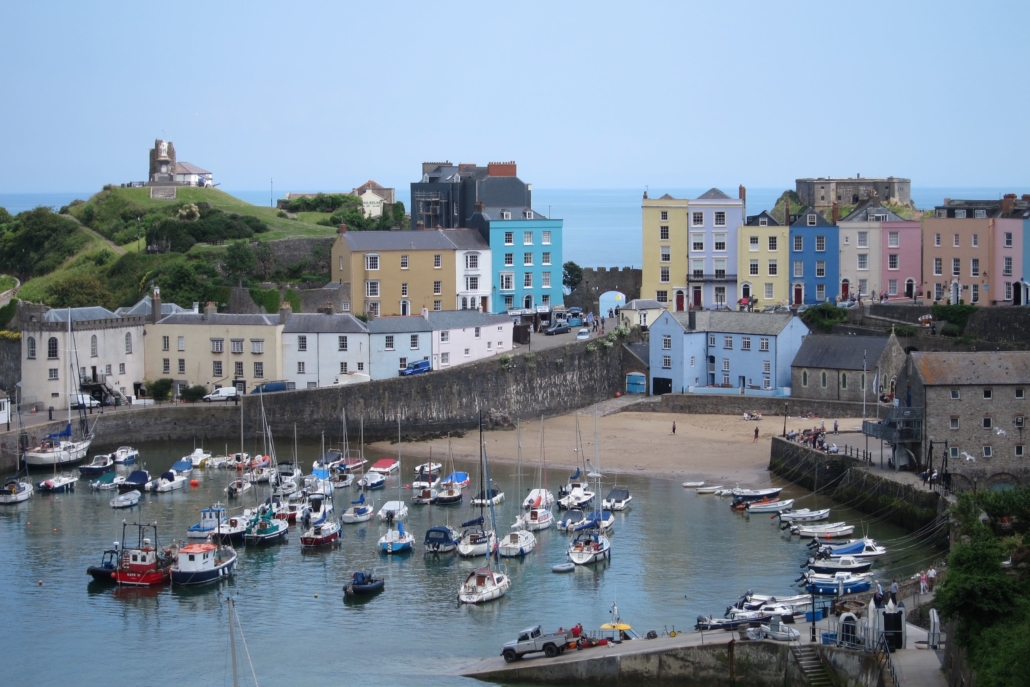May Day, also known as Workers’ Day or International Labour Day, is a national holiday in many countries. Falling on May 1st or the first Monday of May, it is an opportunity to commemorate the challenges faced by and achievements made by workers and labour movements worldwide.
These associations do not fit Britain’s May bank holiday, a public holiday held on the first Monday of May. What springs to mind are beaches heaving with people, long queues for the ‘chippy’, and scrambles for budget airline flights to spend the three-day weekend in continental Europe. The lack of political symbolism of the 1st May in Britain is worthy of reflection. However, it is precisely the popular culture, of sea, sunburn and fish and chips, that concern this contribution to DePOT’s monthly blog.
Despite this glowing report, the allure of the seaside comes at a cost. Tourism in coastal towns developed in response to the decline of traditional economic functions such as the fishing industry while capitalising upon the heritage of these communities. Gentrification, the proliferation of short-term rents, and the outmigration of young populations represent further threats. My research focuses on several coastal towns in South Wales. Tourism represents a greater contribution to the Welsh economy than any other country in the UK. Meanwhile, the Welsh fishing fleet is significantly smaller than its neighbours and vulnerable to being marginalised.
The fracturing of low-impact, small-scale fisheries is a global challenge. UK seafood consumption is dominated by the ‘Big Five’ species, tuna, cod, salmon, haddock and prawns, all predominantly supplied by the import market. Traditional fishmongers and fresh seafood have been supplanted by supermarket chains, frozen products and ready meals (Reid 2000). The high-quality shellfish caught in Wales are promptly exported to Spain and France where supply chains result in limited returns for local fishers.
My research explores fishing heritage and seafood culture in unison as they offer unique and complementary perspectives for tackling the decline of the fishing industry in South Wales. Gentrification, fish stocks, pollution and coastal topography are just a few factors equally applicable to understanding the popularity of seaside destinations and changing patterns of seafood consumption.
Besides their maritime proximity, fishing heritage and seafood culture offer access to our value systems. In the age of the Anthropocene, on the brink of ecological collapse, it is worth attending to the values to which we subscribe. My research addresses the values underpinning fishing heritage and seafood culture in South Wales. My intention is to redirect these categories to draw attention to and create support for small-scale production and localised consumption.
Returning to May Day in Britain, and the trope of packed beaches, fish and chips, and ice-cream vans, my concern is not with the ethics or efficacy of heritagisation and touristification. These fishing villages turned seaside resorts represent an ideal locus for my research into small-scale fishing, local seafood and the future of fishing heritage in South Wales. My research aims to disentangle and think through seafood and heritage, to ascertain threats to and opportunities presented by the Welsh fishing industry. Food is familiar, as a topic for discussion and when subsumed by our bodies following consumption (Bennett 2010). Wild fish inhabit a world devoid of human intervention, defying national borders (Bestor 2001). These topics are powerful mediums for thinking about the engagements between human and non-human agencies, and the contradictions, fragility and insularity of our value systems. Discussing seafood consumption at a time when 4.2 million people in the UK are living in food poverty may seem superfluous. However, the need to reconsider our habits of extraction, production and consumption is imminent, and anthropocentric courses of action are not the way forward (Moore 2015; Tsing 2015). My hope is that these reflections will be conducive to reorganising human and non-human life more generally.






 Source: Store Norske Leksikon
Source: Store Norske Leksikon